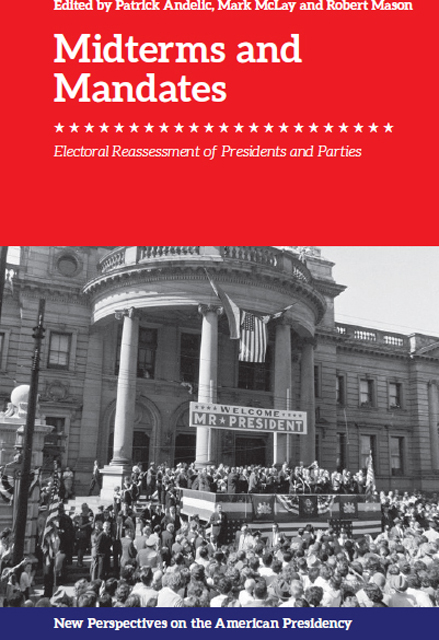Book contents
- Frontmatter
- Contents
- List of Figures and Tables
- Acknowledgements
- Notes on Contributors
- Preface: Why Midterms Matter
- Introduction: Midterms and Mandates, Presidents and Parties
- Part One Midterm Elections in Institutional Context
- Part Two Testing the New Deal Coalition
- Part Three The Republican Resurgence
- Index
10 - ‘Democrats dominate’: The Democratic Party in Congress and the Midterms of 1974 and 1978
Published online by Cambridge University Press: 07 June 2023
- Frontmatter
- Contents
- List of Figures and Tables
- Acknowledgements
- Notes on Contributors
- Preface: Why Midterms Matter
- Introduction: Midterms and Mandates, Presidents and Parties
- Part One Midterm Elections in Institutional Context
- Part Two Testing the New Deal Coalition
- Part Three The Republican Resurgence
- Index
Summary
The 1970s are flanked by the most shattering defeats that the Democratic Party faced in any presidential elections in the post-war era. In 1972, the Democratic presidential nominee, George McGovern, lost forty-nine states to the incumbent president, Richard Nixon, a defeat more lopsided than any party had experienced in the twentieth century. Just eight short years later, in 1980, not only did Jimmy Carter become the first president to be defeated for re-election since Herbert Hoover, but the Democrats lost their majority in the Senate for the first time since the 1950s. Four years after that, in 1984, the Democrats chalked up a second forty-nine-state defeat, when Carter’s former vice president Walter Mondale lost in a landslide to incumbent president Ronald Reagan. In histories of the post-war United States, these elections are often cited as stepping stones for the triumph of the New Right, as first Nixon and then Reagan solidified a Republican hegemony that would consign the Democratic Party to the political wilderness.
Yet beneath those headline successes for the Republicans was another story of stubborn Democratic endurance in Congress. Nixon’s 1972 landslide was remarkable for how short his coattails proved to be. Not only did the Republican Party fail to win either chamber of Congress, Democrats gained seats in the Senate. In 1984, in the midst of another landslide defeat for the party, Democrats held their lopsided House majorities and again gained seats in the Senate (although Republicans held the Senate majority they had won in 1980). Two years later, the Democrats would win back control of the Senate and seemingly resolidify their position on Capitol Hill. Indeed, by 1990, analysts were writing of the phenomenon of the ‘permanent Democratic Congress’.
In between those landmark elections for the coalescing New Right came a moment when the political realities of mid-century seemed to have reasserted themselves, with the Democratic Party enjoying a hegemony in Washington, DC, controlling both White House and Congress. Yet the relationship between Jimmy Carter’s White House and the Democratic Congress was notoriously dysfunctional. Many historians have attributed this to Carter’s shortcomings as a congressional manager. However, the midterm elections of 1974 and 1978 are key to understanding why that relationship was so fractious and why congressional Democrats believed that they had a separate, even superior, mandate to that enjoyed by Carter.
- Type
- Chapter
- Information
- Midterms and MandatesElectoral Reassessment of Presidents and Parties, pp. 235 - 256Publisher: Edinburgh University PressPrint publication year: 2022



